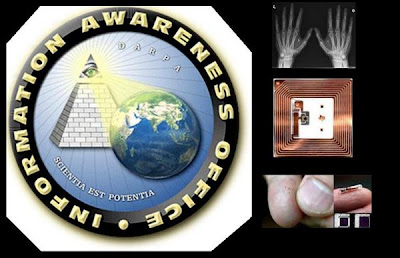Rape as a Weapon of War
Women's bodies have become part of the terrain of conflict
Denis Mukwege is a gynaecologist working in the Democratic Republic of Congo. He and his colleagues have treated about 30,000 rape victims, developing great expertise in the treatment of serious sexual injuries. His story includes disturbing accounts of rape as a weapon of war.
When war broke out, 35 patients in my hospital in Lemera in eastern DR Congo were killed in their beds.
I fled to Bukavu, 100km (60 miles) to the north, and started a hospital made from tents. I built a maternity ward with an operating theatre. In 1998, everything was destroyed again. So, I started all over again in 1999.
It was that year that our first rape victim was brought into the hospital. After being raped, bullets had been fired into her genitals and thighs.
I thought that was a barbaric act of war, but the real shock came three months later. Forty-five women came to us with the same story, they were all saying: "People came into my village and raped me, tortured me."
Denis Mukwege
Other women came to us with burns. They said that after they had been raped chemicals had been poured on their genitals.
I started to ask myself what was going on. These weren't just violent acts of war, but part of a strategy. You had situations where multiple people were raped at the same time, publicly - a whole village might be raped during the night. In doing this, they hurt not just the victims but the whole community, which they force to watch.
The result of this strategy is that people are forced to flee their villages, abandon their fields, their resources, everything. It's very effective.
Spoils of war?
From the systematic rape of women in Bosnia, to an estimated 200,000 women raped during the battle for Bangladeshi independence in 1971, to Japanese rapes during the 1937 occupation of Nanking - the past century offers too many examples.
So what motivates armed forces, whether state-backed troops or irregular militia, to attack civilian women and children?
Gita Sahgal, of Amnesty International, told the BBC News website it was a mistake to think such assaults were primarily about the age-old "spoils of war", or sexual gratification.
Rape is often used in ethnic conflicts as a way for attackers to perpetuate their social control and redraw ethnic boundaries, she said.
"Women are seen as the reproducers and carers of the community," she said.
"Therefore if one group wants to control another they often do it by impregnating women of the other community because they see it as a way of destroying the opposing community."
A report by Medecins Sans Frontieres says it first came across rape as a weapon in the 1990s.
"In Bosnia systematic rape was used as part of the strategy of ethnic cleansing," it said.
"Women were raped so they could give birth to a Serbian baby."
The same tactic was used in a "very strategic attack" by state-backed Pakistani troops during the fight for Bangladesh's independence in 1971, Ms Sahgal said.
Rape as a Weapon of War
Rape became politicized during the recent election. Extreme conservatives favored the modifiers "legitimate" or "forcible" while feminists countered with the slogan, "Rape is rape." When a woman is raped during an armed conflict, rape takes on a different character. Rape becomes a weapon of war -− a cheap weapon of war.
Under any circumstance, rape is a brutal, dehumanizing attack. Rapes of civilian women during war take on the most horrendous aspects of this crime. Women are often raped in front of their husbands and children by multiple men using their bodies and, at times, gun barrels or other objects to penetrate women.
Like any rape, these acts may to lead to pregnancy and transmission of STDs and infection. The psychological toll can be devastating. Victims may be stigmatized by their communities and even subject to honor killing by their families. Typically, justice is not available because civil police organizations are disbanded or ineffective during wartime.
It is important to recognize that conflict rapes are much more than opportunistic pillaging. In modern warfare, rape has become a strategic weapon used to humiliate, demoralize and dehumanize the enemy. The use of rape as a tactic may, in fact, be ordered by those in command of combatants. In ethnic conflicts, rape is seen as a tool of genetic "cleansing." Even when a conflict has ended with a truce or ceasefire, rape continues to be used as a weapon against the vanquished civilian population. Rape violates the Geneva Convention and is viewed as a "crime against humanity" by the International Criminal Court.
Recent history provides horrific examples of the use of rape as a weapon of war:
~ Approximately up to 500,000 women were raped during the Rwandan genocide
~ Approximately up to 64,000 women were raped in Sierra Leone
~ Over 40,000 women were raped in Bosnia-Herzegovina
~ Hundreds of women are raped every day in Syria, Sudan and Democratic Republic of Congo
The reality of rape during conflict is brought home by a crowd-sourced map of Syria that reports the location and details of sexual assaults occurring during the current conflict. This resource is maintained by the Women under Siege Project of the Women's Media Center.
The days between Nov. 25 and Dec. 10 have been designated by the Center for Women's Global Leadership and the Nobel Women's Initiative as the 16 Days of Activism Against Gender Violence Campaign. In 2012, this campaign focuses on gender violence in conflict, use of small arms in domestic violence and state actors perpetrating violence against women, such as commanders sexually assaulting military women with impunity.



Comments